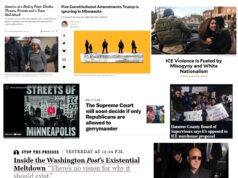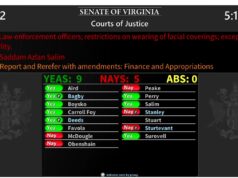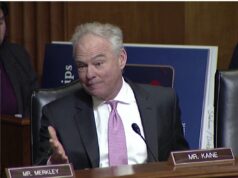The purpose of the series titled “A Better Human Story,” of which five installments have already been posted here, is to provide an “integrative vision” that illuminates
- why the history of civilized humankind has been so tormented, and illuminates also more specifically
- the nature of the dark force that has gained in power in the United States over the past generation, and still more specifically
- the process by which something so previously so unthinkable as the election of Donald Trump as President could come about.
I claim that this “integrative vision” helps illuminate, in other words, the basic challenge that has confronted our species for the past 10,000 years, and the more specific challenge that we Americans face at this particularly dangerous moment in our national history.
One of the foundational pieces of that “integrative vision” is an idea developed at length in my book, THE PARABLE OF THE TRIBES: THE PROBLEM OF POWER IN SOCIAL EVOLUTION (first edition published in 1984 by the University of California Press, second edition from SUNY Press in 1995). This idea was also articulated here, more briefly, in the 5th installment of the “Better Human Story” series.
It’s an idea that I believe should transform our understanding of the meaning of the story of humankind. Although in some ways the idea is simple and straightforward, to really get it one must proceed through a series of steps to reach its (logically irresistible, I believe) conclusion.
Here, for the first time, I’ve reduced that idea to that series of steps. Here is “the parable of the tribes” at the length of an op/ed piece.
*********************
The Logical Steps of the Parable of the Tribes
(or, How Humankind Got Caught in a Social Evolutionary Trap)
The idea I call “the parable of the tribes” argues that an inevitable consequence of any species extricating itself from the niche in which it evolved biologically is that its new form of society will evolve in directions it did not and would not choose.
It argues that for reasons having nothing to do with that species’ inherent nature, but due rather to the inevitably unregulated nature of the interactions between these new life-form entities – civilized societies – it is the demands of power, not the needs of the creature, that will dictate the evolving shape of those societies and the (often wounding) demands these societies make upon their human members.
These are the steps by which that unfortunate but inevitable trap would inevitably close shut on any creature – on this or any other planet – that makes such a breakthrough. These are the steps by which an apparent unprecedented kind of freedom is transmuted into a painful bondage to an unprecedented kind of necessity.
- The starting point is the breakthrough into re-arranging the ecosystem to meet human needs better, through domestication of plants and animals; –>
- That creates new-found open-ended possibilities for cultural innovations of all kinds, including an indefinite capacity for this new kind of society to expand without inherent limit; –>
- As a consequence, interactions among a cluster of such societies are inevitable; –>
- Those interactions are altogether unregulated, as these societies are no longer operating within the confines of any biologically evolved order and, in this fragmented system, there is no possibility of putting any overarching human-designed order into place; –>
- It is unavoidable that a struggle for power among these societies will result, as the unregulated nature — the anarchy — of the overarching intersocietal system inevitable creates what Hobbes said of anarchy, “the war of all against all.” –>
- The combination of this inevitable struggle for power with open-ended possibilities for cultural innovation means that the victors in the struggle for power represent not just themselves but also a non-random sub-set of the wide-range of (apparent) possibilities for the future of human society; –>
- That non-random subset will inevitably consist of those cultural forms that confer upon a society the kind of power that is required to survive in that war of all against all –>
- This survival only of what can succeed in the struggle for power means that what wins the human future is less the particular societies that organize for power, than those particular forms of cultural organization that are demanded by “the selection for power; –>
- It is therefore inevitable that — over time — the ways of power will be the direction of that the human world takes, as all other ways of fashioning human cultural life (that confer weakness upon a society in the war of all against all) – regardless of how beautiful they may be — will be rendered unviable choices for humankind. –>
- This inevitability of “the selection for the ways of power” is what the “parable” in “the parable of the tribes” itself demonstrates: i.e. that any effective power-maximizing entity in the interactive system acts like a contaminant that inevitably infects the whole. –>
- Specifically, the “parable” says that the threat from any one effective power-maximizer (in an interactive system of societies) spreads the ways of power because of the limited range of outcomes available to those nearby societies confronting this one imperialist. Those options are to be either: 1) destroyed, or 2) defeated and absorbed into the conqueror’s system, or 3) compelled to retreat to some inaccessible place, out of reach of the power that is threatening its neighbors, thus leaving its territory to be absorbed into the expanding power-system, or 4) driven – in order to defend itself – to organize itself to achieve sufficient power to beat back a powerful would-be conqueror. –>
- The fourth option – self-defense – may look like a way to preserve one’s own culture, but to resist power one must have power, and power is a function of a great many dimensions of a society. So the society that wants to defend itself is compelled to make cultural choices that provide sufficient power; and if the threatening society has magnified its own power with cultural innovations, successful self-defense against that threat will likely require imitation of the aggressor’s power-enhancing ways. –>
- All those four options, therefore, have one thing in common: with each outcome, the ways of power are spread further into the system of civilization. –>
- The overall direction of the evolution of civilization is therefore a function of the anarchic nature of the situation into which we, as a species, inadvertently stumbled. Given the breakthrough (out of hunting-gathering and into food-production), all the rest follows, pretty much regardless of human nature. All it requires is creativity in generating cultural options, and resourcefulness in applying them to assure survival. –>
- Our species should be seen not as this monstrous thing humankind has shown of itself throughout the history of civilization, but rather as a creature trying as best it can to deal with an impossible situation.











